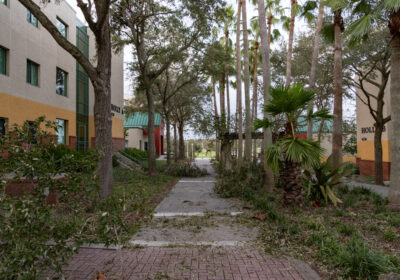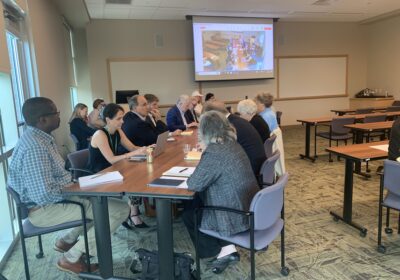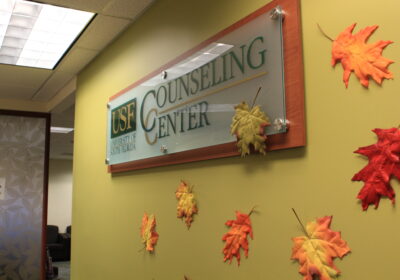Florida teacher shortage multidimensional, professors say

As of late July, the state of Florida needed to fill 9,000 teacher vacancies across the state, according to the Florida Department of Education. Many components contribute to this immense shortage, including teachers’ concerns regarding low pay and challenging work conditions.
When Associate Dean of Academic Affairs Ana Cranston-Gingras graduated with her bachelor’s in English education from St. John’s University in 1980, the field looked different than it does today.
“Young women now have limitless opportunities. So that, I think, is a factor because the teaching profession historically has been predominantly female,” Cranston-Gingras said.
In the early 20th century, women predominantly filled the roles of teachers as the position called for patience and caring that coincided with female gender expectations of the time, according to a 2019 Atlantic article. However, now women account for 45% of all college students pursuing STEM degrees, an April Forbes article said, which were paths formerly reserved for men.
Due to the low pay, Cranston-Gingras recalled that she, as well as many of her colleagues, had to work additional jobs at the beginning of her career. This problem remains present today considering that one-third of new teachers have to work an additional job, according to the National Education Association.
This is something incoming college students consider when choosing a career in education, professor of literary studies Jenifer Jasinski Schneider said.
“What deters them, is the fact that they can’t make a living salary, that teachers will often need to have multiple jobs to maintain a house or a family,” she said.
Initial salaries of teachers are equivalent to other fields, said Cranston-Gingras, but raises are not as large and don’t come as quickly for teachers.
Teacher pay rates are not increasing with the speed of inflation. Therefore, the 1.4% increase in starting teacher salary in 2020-21 resulted in a 4% decrease due to inflation rates, according to the National Education Association.
In fact, the average annual salary for teachers in Florida has decreased over the course of the past 20 years, according to the National Center for Education Statistics. Between 1999-2000 elementary and secondary school teachers were making what is equivalent to $57,081 at today’s rate. Yet, in 2020-21, the average salaries dropped about 13%, leaving teachers only $49,583 annually.
In the past five years, the College of Education has experienced a 26% decline in enrollment, said Cranston-Gingras. At the time USF was considering dropping the program in 2020, the school had witnessed a decline of 63% in enrollment over the past decade, according to a 2021 WUSF article.
Budgeting strains from the impacts of the pandemic influenced the discussion on top of the already declining enrollment numbers, according to a 2020 Oracle article.
After receiving feedback from local school districts and superintendents, the decision was quickly discarded the following January, according to Jansinski Schneider. Area superintendents wrote an op-ed voicing their concerns regarding the decision, echoing a need for the programs at USF.
The pressures teachers in Florida have been facing have often come from outside of the classroom, as the DeSantis administration puts them under a microscope as to what they are allowed to discuss during lessons, threatening their employment if transgressed.
Florida’s Parental Rights in Education Law, popularized as the “Don’t Say Gay Bill” and The Stop the Wrongs to Our Kids and Employees (WOKE) Act, both seek to filter the dialogue facilitated in classrooms surrounding the intersectionality of members of the LGBTQ community and the teaching of critical race theory, according to a July The 19th* article.
Boarding discussion of critical race theory or vocalizing support for LGBTQ students and movements are not allowed by the bills, according to a June Click Orlando.com article. While broaching subjects that commonly cross with these ideas, teachers now have the added stress of having to be nimble when addressing them or else it could result in their funding being withheld.
Even prior to the activation of these bills, Florida’s teachers have been under more pressure to adhere to state politics since the pandemic as they were some of the first to return to in-person K-12 instruction in 2021, according to a 2021 Wall Street Journal article.
While COVID-19 was still at large, teachers were ordered back into the classroom via a state order, according to Ballotpedia, forcing them to go about their schedule while following mitigations, such as social distancing and regular testing.
Another major factor of the teacher shortage is the retention, looking at who not only goes into teaching but who stays, according to Cranston-Gingras.
While the motivation remains, the amount of students taking teaching classes in certain areas remains low. For example, special education enrollment has dropped 40% and there has been a 45% decrease in enrollment in science education in the past five years, according to Cranston-Gingras.
“When there is a teacher shortage, there’s a job waiting for you when you finish college. So why aren’t people flocking to education?” she said. “It’s not so much about what’s happening inside of the College of Education as much as what’s happening in the career past it.”
Teacher shortages could be an ongoing problem that impacts the students, according to Jasinski Schneider. She said that it is a possibility that marginalized students and those in poverty will be disproportionately impacted.
“Teaching is not a high-paying, high-status job in society, but for those who have great teachers and have been impacted, they know that it is a high-status career [that] has real impact,” Jasinski Schneider said.
In an attempt to remedy the shortage, Gov. Ron DeSantis proposed Senate Bill 896, which would allow first responders, including military veterans, to fill teaching positions. The program launched July 1, resulting in 209 people signing up for the program as of Aug. 17, according to WFTV 9 News.
Jasinski Schneider holds concerns regarding how effective this bill might be in filling the gap. The value of teaching was represented during the height of COVID-19, proving that teaching is not as easy as one might think, she said.
She worries that incoming teachers with no training or experience are not going to be able to execute the strategies and teach the curriculum well once in the classroom.
“There is no direct transfer from any other career into teaching. Just because someone has great skill in another field, doesn’t mean they will know how to teach,” Jasinski Schneider said.
“Teaching is about taking processes and strategies that could be internal to someone and then you turn them outside, but it’s also about working with a variety of learners and being able to adapt.”






